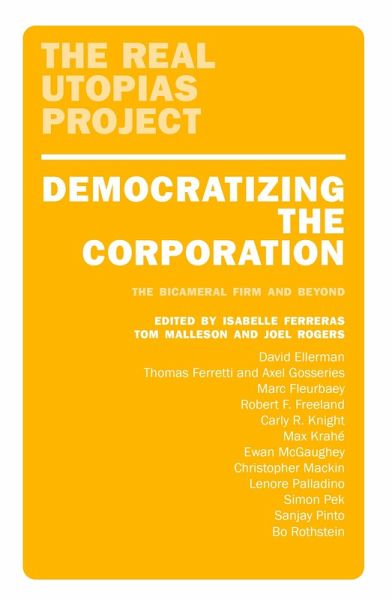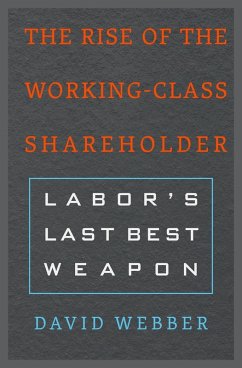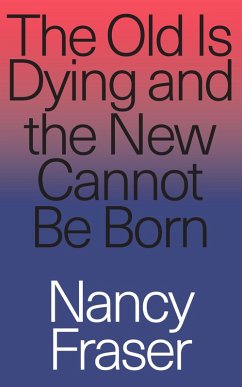
Democratizing the Corporation (eBook, ePUB)
The Bicameral Firm and Beyond
Redaktion: Ferreras, Isabelle; Rogers, Joel; Malleson, Tom
Versandkostenfrei!
Sofort per Download lieferbar
18,95 €
inkl. MwSt.
Weitere Ausgaben:

PAYBACK Punkte
9 °P sammeln!
Although contemporary Western societies refer to themselves as "democratic," the bulk of the population spend much of their lives in workplaces that have more in common with tyranny. Gigantic corporations such as Amazon, Meta, Exxon, and Walmart are among the richest and most powerful institutions in the world yet accountable to no one but their shareholders. The undemocratic nature of conventional firms generates profound problems across society, hurting more than just the workplace and contributing to environmental destruction and spiraling inequality.Against this backdrop, Isabelle Ferreras...
Although contemporary Western societies refer to themselves as "democratic," the bulk of the population spend much of their lives in workplaces that have more in common with tyranny. Gigantic corporations such as Amazon, Meta, Exxon, and Walmart are among the richest and most powerful institutions in the world yet accountable to no one but their shareholders. The undemocratic nature of conventional firms generates profound problems across society, hurting more than just the workplace and contributing to environmental destruction and spiraling inequality.
Against this backdrop, Isabelle Ferreras proposes a radical but realistic plan to democratize the private firm. She suggests that all large firms should be bicamerally governed, with a chamber of worker representatives sharing equal governance power with the standard board representing owners. In response to this proposal, twelve leading experts on corporate behavior from multiple disciplines consider its attractiveness, viability, and achievability as a "real utopian" proposal to strengthen democracy in our time.
Against this backdrop, Isabelle Ferreras proposes a radical but realistic plan to democratize the private firm. She suggests that all large firms should be bicamerally governed, with a chamber of worker representatives sharing equal governance power with the standard board representing owners. In response to this proposal, twelve leading experts on corporate behavior from multiple disciplines consider its attractiveness, viability, and achievability as a "real utopian" proposal to strengthen democracy in our time.
Dieser Download kann aus rechtlichen Gründen nur mit Rechnungsadresse in A, D ausgeliefert werden.













